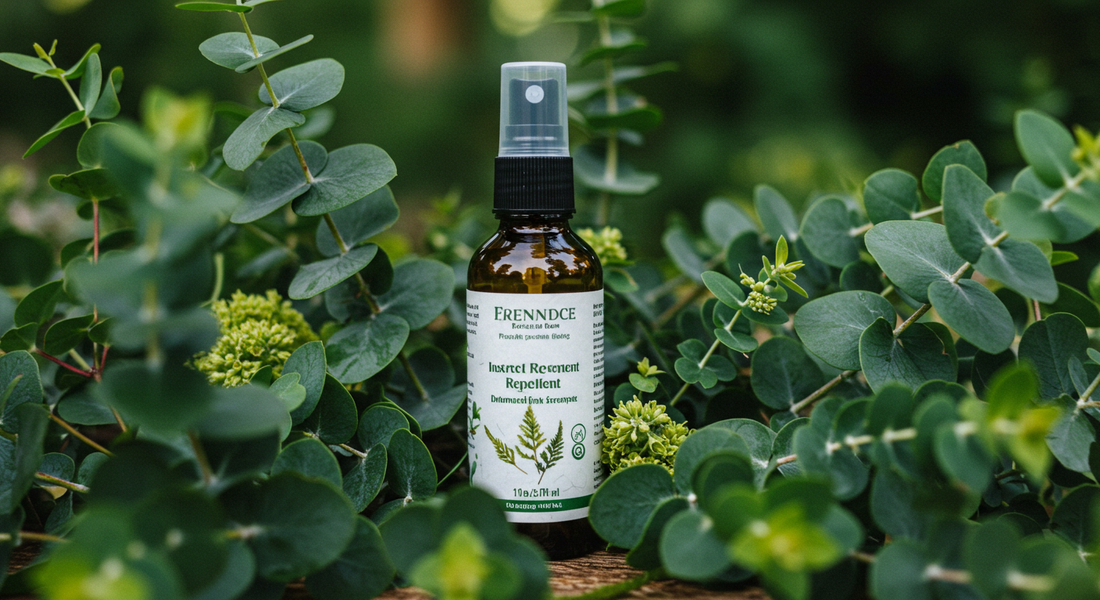
The Complete Guide to Choosing the Right Insect Repellent for Outdoor Adventures
Share
Introduction
Whether you’re camping in the forest, hiking along scenic trails, or enjoying a peaceful evening by the lake, nothing ruins an outdoor experience faster than persistent mosquitoes, biting flies, or ticks. Insect bites are more than just an itchy inconvenience—they can transmit serious diseases such as Lyme disease, West Nile virus, and dengue fever. For those who love the great outdoors, having a reliable insect repellent is as essential as a sturdy tent or comfortable hiking boots.
At Packstead, we believe that preparation is the key to enjoying nature safely and comfortably. That’s why choosing the right insect repellent is not just a matter of convenience—it’s an investment in your health and peace of mind.
Understanding How Insect Repellents Work
Insect repellents function by creating an invisible shield between your skin and pests. They don’t kill insects; rather, they make you less attractive to them, often by masking the scents that draw bugs to humans, such as carbon dioxide and lactic acid.
The most effective repellents usually contain active ingredients that have been tested for their ability to deter specific pests. These can be synthetic, such as DEET and picaridin, or natural, like citronella, eucalyptus, and lemongrass oil.
Types of Insect Repellents
There’s no one-size-fits-all solution when it comes to protection from biting insects. Your choice will depend on your destination, activity, and personal preferences.
1. DEET-Based Repellents
-
Pros: Proven effectiveness against a wide range of insects; long-lasting protection (up to 10 hours with higher concentrations).
-
Cons: Can have a strong odor; may cause skin irritation in sensitive individuals; not ideal for plastics and synthetic fabrics.
-
Best for: Extended hikes in tick-heavy areas or mosquito-dense regions.
2. Picaridin Formulas
-
Pros: Nearly odorless; less irritating than DEET; safe for use on gear and clothing.
-
Cons: Slightly shorter duration than high-concentration DEET in some environments.
-
Best for: Travelers and campers looking for broad-spectrum protection without the strong scent.
3. Natural Essential Oil Repellents
-
Pros: Pleasant scent; eco-friendly; some oils like lemon eucalyptus provide moderate protection.
-
Cons: Generally shorter protection window (2–4 hours); may require frequent reapplication.
-
Best for: Casual camping trips, picnics, and those seeking a natural insect repellent for camping experience.
4. Wearable Devices
-
Pros: No skin contact; convenient; great for children and people with sensitive skin.
-
Cons: Limited coverage; best used as a supplementary layer of protection.
-
Best for: Evening BBQs, light hiking, or as wearable mosquito repellent bands for travel.
Choosing the Best Bug Repellent for Camping
When shopping for an insect repellent, keep these considerations in mind:
-
Duration of Activity – Longer trips require longer-lasting protection.
-
Target Pests – Some repellents are more effective against ticks than mosquitoes, or vice versa.
-
Formulation Preference – Sprays, lotions, roll-ons, and wipes each have advantages.
-
Safety Needs – Look for safe insect repellents for children and pets if camping as a family.
-
Eco Impact – For environmentally conscious campers, eco-friendly bug repellent solutions are the way to go.
Insect Bite Prevention Tips for Hikers
Even the best repellent works better when combined with smart prevention strategies:
-
Wear Light-Colored Clothing: Makes spotting ticks easier.
-
Cover Exposed Skin: Long sleeves and pants help block bites.
-
Treat Clothing and Gear: Permethrin-treated fabrics provide an extra layer of defense.
-
Avoid Peak Mosquito Hours: Dawn and dusk are prime biting times.
-
Stay Away from Stagnant Water: A favorite breeding ground for mosquitoes.
Portable Insect Repellent Devices for Outdoors
For campers who want consistent protection without constant reapplication, portable devices are a game-changer. Battery-powered, butane-heated, or ultrasonic gadgets can create a mosquito-free zone around your tent or picnic area. Packstead offers several compact, field-tested options that slip easily into your camping kit.
The Case for DEET-Free Bug Repellents
While DEET remains a gold standard, many outdoor enthusiasts prefer DEET-free alternatives due to concerns about odor, skin sensitivity, or environmental impact. Picaridin, IR3535, and lemon eucalyptus oil are highly effective choices for those seeking a DEET-free bug repellent spray. These options are also more gear-friendly, avoiding the risk of damaging plastics and synthetic fabrics.
Safe Use Guidelines
Regardless of which repellent you choose, follow these safety tips:
-
Apply only to exposed skin and outer clothing.
-
Avoid eyes, mouth, and open wounds.
-
For children, spray repellent on your hands first, then apply to their skin.
-
Wash treated skin with soap and water after returning indoors.
-
Reapply according to product instructions—more is not necessarily better.
Eco-Friendly Bug Repellent Solutions
Environmental awareness is increasingly important for outdoor lovers. Choosing biodegradable, plant-based products reduces chemical runoff and preserves the integrity of natural habitats. Look for packaging made from recycled materials and avoid aerosol cans where possible.
Packstead supports eco-conscious campers by curating a selection of repellents that balance performance with sustainability.
Conclusion
A successful outdoor adventure is one where you return with memories, not mosquito bites. Whether you opt for a tried-and-true DEET formula, a modern picaridin blend, or a natural essential oil spray, the key is to match your repellent choice to your activity and environment. Combined with practical prevention strategies, the right insect repellent will keep you safe, comfortable, and ready to explore.
With the right gear from Packstead, you can venture into the wild with confidence, knowing you’re protected from nature’s smallest—yet most persistent—annoyances.

